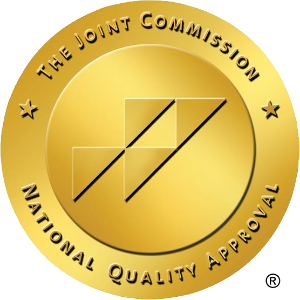Breaking free from addiction is a difficult and arduous task that involves a lot of personal accountability and strength. Luckily there is a clear path and plenty of resources, like this one, that you can turn to on your journey.
If you feel like you or someone you know is struggling with addiction it is important to address it as quickly as possible. Often addiction is not obvious, it is a slow slip from recreational use to a bad habit to full blown addiction. It is important to address it as quickly as possible because the earlier you address it the easier it is to reverse the effects.
Whether your struggles are with alcohol, methamphetamines, or other substances the journey to recovery looks similar.
Step 1 – Acknowledge
It is impossible to work on fixing a problem that you do not acknowledge as a problem. The logical first step in addressing your addiction is admitting to yourself and fully believing that you have an addiction. Once you do this you will be able to properly progress through the following steps to boost your personal health and happiness.
Step 2 – Accountability
Holding yourself accountable is a great next step in your journey toward sobriety. Despite its importance it is very difficult to hold yourself accountable in the face of addiction. When struggling with addiction your body is demanding the exact substance you are trying to avoid, which will make it virtually impossible to fight without the help of a support system.
You can begin building this support system by trusting a close family member or friend to monitor your habits and ensure you start making changes. This is a good idea because it helps you feel safe and comfortable, however, friends and family are not versed in how to help you fight your addiction.
In many cases it is beneficial to also reach out to professional services such as a therapist or program that specializes in addiction help. These professionals are far more objective when helping you and they have a huge amount of experience helping people in similar situations to yourself.
Holding yourself accountable and building a trusted support system is a huge benefit to your fight against addiction and eventual journey to sobriety.
Step 3 – Address
Now that you have admitted you have a substance addiction issue and worked to hold yourself accountable with a support system, it is time to start addressing your addiction. This process is by far the most difficult part.
First you will have to address all major relationships in your life and decide if they are healthy. Often people struggling with addiction have relationships with enablers and are involved in a codependent relationship. You will need to critically look at your relationships and be willing to move on from friends and sometimes family members that do not have your best interests in mind.
Next you will need to find some new habits. Obviously the first one should be to avoid your vice at all costs, next will be to form some new habits that help you actively and passively fight your addiction.
Forming New Habits
The best way to properly address your addiction is to form new habits. The first step is to start exercising. Exercise is a great way to train your mind to stay focused on a task and it helps you rehab your body after the abuse you have been giving it. Additionally, it provides a great mental and physical feeling that will eventually replace the high you have been chasing in the past.
If exercise is new to you it is best to start with simple sustainable exercise, diving in too deep will be fulfilling initially but extremely hard to maintain. Instead of immediately joining a gym or starting to run aggressively, simply take a walk around the block everyday. As you get bored of this you can add distance, start hiking in the woods, or try jogging. If you continue to progress slowly like this you will find yourself feeling healthy and happy in no time.
Exercise is also a blast to do in group. When you are feeling ready, try joining a gym or attending yoga classes. Not only will this help you exercise regularly but it will help you meet like minded people who encourage you to stay healthy and clean. These new friendships can turn into an effective support system and at the very least will cement your progress in a life of sobriety.
In addition to exercising it can be beneficial to find new hobbies. Often addiction leads you to stop doing hobbies you used to do. Revisiting these hobbies will bring you happiness and help you build new friendships. Finding something you enjoy without your vices will also go a long way in reassuring yourself that life is better without your addiction.
Breaking Free
Following these steps and continuing to focus on moving forward in your life of sobriety will bring you happiness and better health. Your new support systems that you have found through professionals, exercise, and new hobbies will enable you to see all the positives in life and help you continue to grow as a person.
While you will feel happy, healthy, and free it is important to remember that recovery from addiction is a lifelong process that only gets easier, it never ends. With that in mind it is important to continue learning about addiction and recovery so that you can be best prepared for whatever life has in store in the future.





